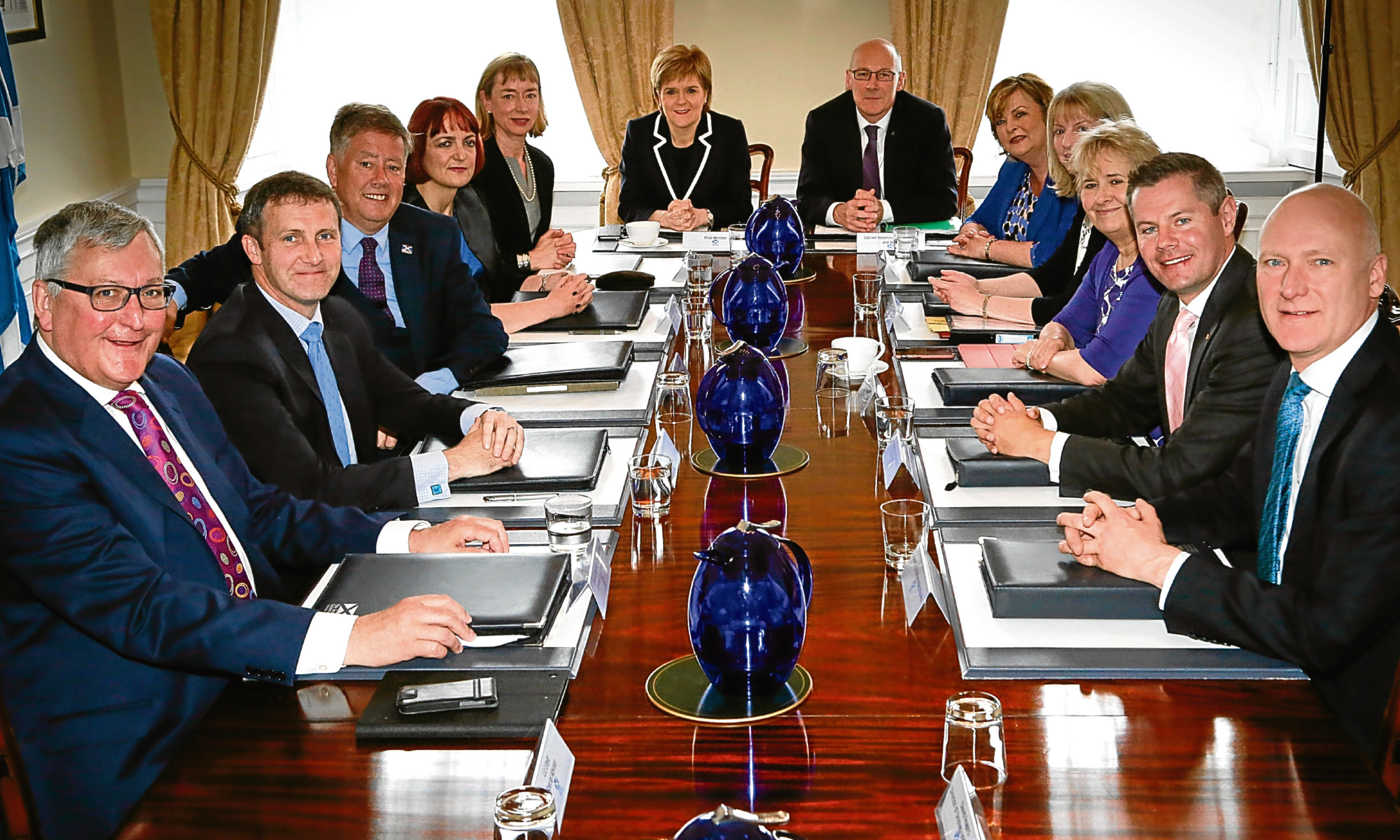An Evening of Clairvoyance with Spiritualist Medium is advertised in the papers, coming to Scotland soon.
By the name of the clairvoyant is an asterisk linking to small print at the bottom of the advert reading “for entertainment purposes”.
So despite the fact that he promises a “roller coaster of emotions” and “laughter to tears and back again”, it seems he’s not claiming any ability to connect with the dead.
The tears will presumably come from vulnerable people who have been turned into someone else’s entertainment through a few tricks – but hey, they were warned.
You can search for Stephen Holbrook if you are interested, though it’s your money you are wasting, as far as I’m concerned.
This newspaper advertisement struck a chord in the week the Scottish Government announced a new referendum bill.
Seeing as it is Nicola who gets to choose the date of any new referendum, Nicola who edits the bill and Nicola who suggests the question, it only serves to underline that it is Nicola who is buying time.
One can’t help but feel that any talk about independence is a correspondence with the dead, to an event that has passed
Because it’s over, isn’t it? The independence business is done, at least for a generation.
Brexit isn’t a boost but just another obstacle.
With no sign of any substance, such as unravelling the misleading economic case of 2014 or answering the big question over currency, there is no material to help people change their minds from the last time.
The SNP has given up on advocacy – now it just waits until “the people are ready”, which isn’t really any kind of politics at all.
It appears independence talk is a trick like a clairvoyant’s – appearing to do one thing, which matters deeply to people, while actually just passing the time for general political entertainment.
As this becomes more obvious, so do other qualities of this government, things which they really don’t want to be identified with.
The first is condescension.
The people of Scotland are expected to make up their mind on the basis of one two-year-old white paper which has now been disowned by just about everyone bar Alex Salmond.
Nicola no longer trusts it – saying the party had to face up to some hard truths. Joseph Stiglitz, Nobel prize-winning economist, admits currency union was “probably a mistake” and even Kevin Pringle, head of comms for Yes, now says an honest economic case is needed.
But we aren’t being a consulted on that new case. That stuff remains locked up in the Government.
The SNP has opted for independence by ignorance – and it will not work.
This condescending attitude suggests that far from being the people’s friend, the SNP elite may rank as the most arrogant of all Scottish administrations – insisting on a policy but sharing none of the detail.
The second quality is elitism.
It has been clear for a long time that the real power of the SNP lies with a handful of people at the top.
Where this once looked like coldly efficient politics delivering competent government, it increasingly appears like a cabal.
The nationalist elite holds all the cards, tucked to its chest from prying party eyes.
Friends in high office have friends in high business and Scotland is governed just as it always was, by a privileged few.
The parliament hosts debates for show but the power rests elsewhere.
Admittedly, few of them were born into privilege but all of them have grown accustomed to its comfort.
A condescending elite is never a very attractive offer and all the less so when it appears so indecisive.
Independence looks a little like the promise of clairvoyance – of promising something about the past and the future – when it may only be for entertainment purposes, to keep a power-happy elite in office.
There’s a game doing the rounds of Holyrood that goes like this – name three important things the SNP have done?
I think it’s a bit too narrow and a better version is – what have been the most important political actions in Scotland since 1945.
The creation of the Hydro Electric transformed the rural economy in the 1950s, the school reforms of 1962 gave us a world-beating O Grade and Higher system, the Scotland Act of 1998 gave us a parliament – but I struggle to name much of import since.
The land reform of 2003 was important, though only half the job. The smoking ban of 2006 matters but by then it was commonplace in other countries.
If the political elite doesn’t want to tell us about our potential, they might try showing it to us.
Yet a decade of nationalist government has done little to improve on the eight years of unionist squabbles that went before.
The latest legislative programme may help – like so many before, it has great intentions.
But it looks as though the nationalist elite simply don’t know what they want or when they want it.
